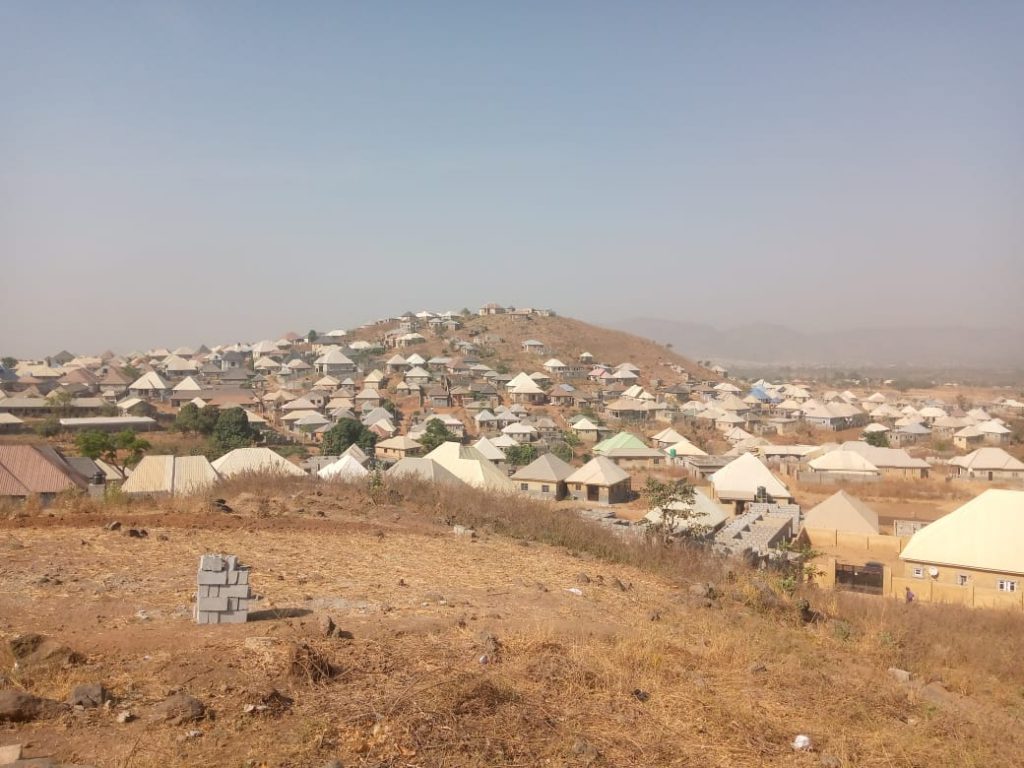For over four decades, dozens of Abuja indigenous people have been in conflicts with the Federal Government and Abuja Development Authorities over land ownership, access, and control.
In the conflicts, indigenous ancestral lands have been forcefully taken over by the government and its officials, denying indigenous farmers access to land, forcing them into poverty and starvation with some of them arrested and detained for putting up resistance.
Mr. Dauda Alkali, an Indigenous farmer from the Giri community, speaking to MAWA Foundation in his residence, recounted how some of them were arrested, detained, and tortured for resisting the army aided by the Nigerian government from forcefully taking over the ancestral lands they rely upon for farming and survival. According to him, they were accused of sabotaging the government which landed them in jail.
“In detention, the government told us we have no right to resist forceful acquisition of our ancestral land,” Alkali told MAWA-Foundation.
Mr. Cletus Dogara, who spoke to MAWA in his Ushafa residence at Bwari Area Council of Abuja, recounted how many of the FCT indigenous people had lost their ancestral lands to the urbanization that is taking place across the FCT.
According to him, the indigenous people lost their lands to government, Chinese Nationals who mine in the different communities, estate developers, and the powerful rich who are engaged in land racketeering and land grab.
Speaking in an angry tone, Dogara disclosed that many of the indigenous people who lost their lands were not compensated, and the few persons who got compensation cannot boast of adequate compensation.
“You cannot take over our lands and give us poorly built two bedrooms as compensation, that is madness, how do you expect farmers who depend on the land to survive,” Dogara said.
The Nigerian government and Federal Capital Territory Administration (FCTA), hiding under the cover of Department of Development Control have displaced many Abuja indigenous people from their ancestral lands with little or no compensation.
Also, read The Pooor Lost Landownership and Control in FCT
Whatever laws and policies the authorities are relying upon to carry out their actions, cannot be a justification to deny the indigenous people access to their lands forcing them into homelessness, poverty, and hunger.
It is important to highlight that decent housing is a fundamental right of every citizen, and the FCT authority must respect and uphold this fundamental right.
As urbanization takes place in FCT, the authority must put in place policies and legislation targeted at addressing issues that affect the indigenous people. Many of them who depend on their ancestral land have since been displaced with no compensation, forcing them to become slaves over properties that are rightly theirs.
And, most importantly, there is no compensation that is enough for land, those who forcefully displace and collect indigenous people’s land under the guise of compensation are denying them the right to existence and cultural lineage which cannot be bought over by compensation no matter the amount.
The displacement of indigenous people in the FCT not only brings high poverty and inequality but also distorts the people’s culture and tradition which is making it difficult for them to find a voice in their ancestral homes.
As the Indigenous people of Abuja face long systems of oppression, the media has failed to elevate their voices. And this has led to their misrepresentation and stereotype. Often, in situations the mainstream media feature them, it comes in the form of PR journalism for the government with the voice of indigenous people completely missing.
It is this void that the MAWA Foundation seeks to fill by producing reports that will give Abuja indigenous people voices to tell the story of their long-term oppression and its impact on them to the world.

